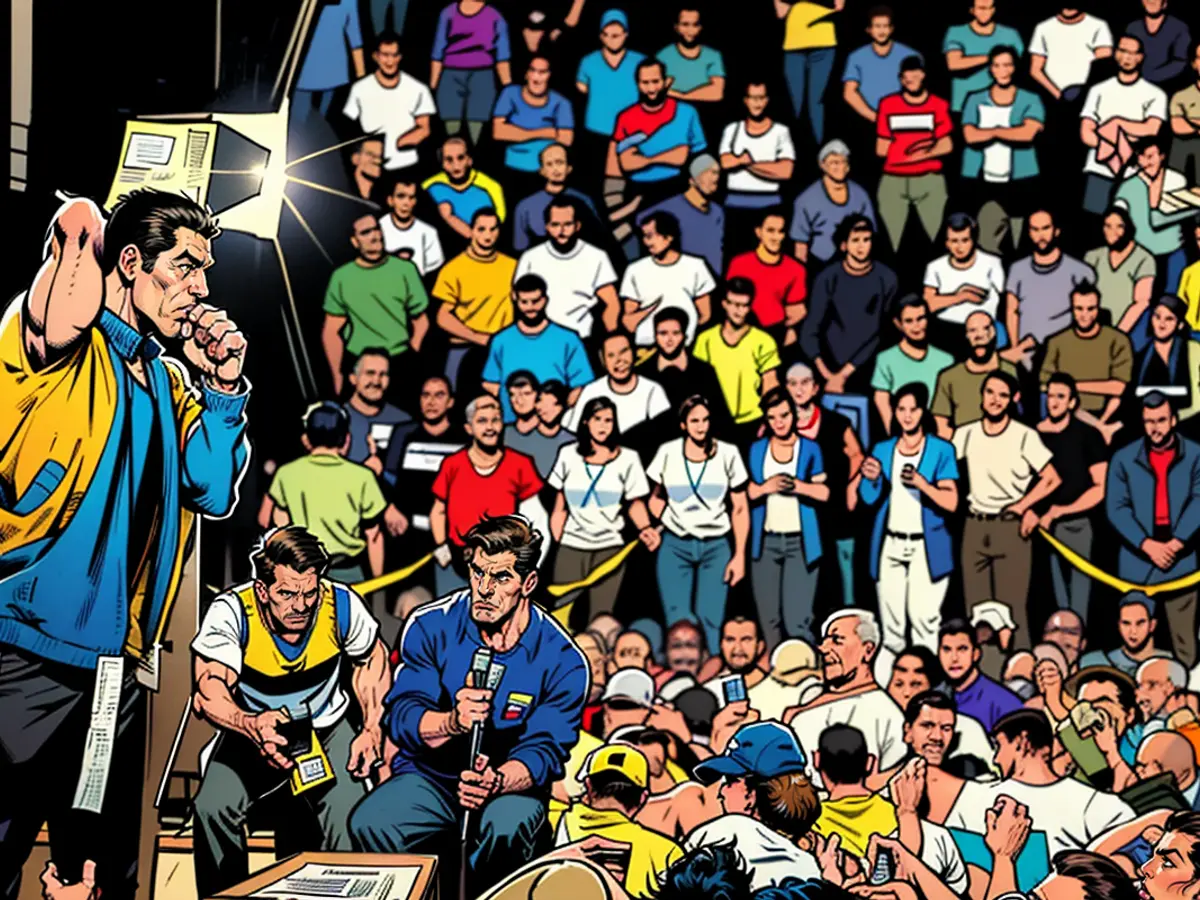Maduro speaks of "attempted coup"
After the election in Venezuela, the opposition claims a landslide victory, while the incumbent winner, Maduro, sees a "fascist" coup attempt. Latin American neighbors and the UN call for transparency.
The re-election of incumbent Nicolás Maduro as President of Venezuela has sparked international doubt and protests. Alongside numerous Latin American countries, UN Secretary-General António Guterres also called for "absolute transparency". Despite this, the largely government-loyal electoral authority declared Maduro the official winner. In response to the opposition's fraud allegations, Maduro spoke of a "coup attempt".
The National Electoral Council (CNE) announced that Maduro had been re-elected as President for the period 2025-2031 with 51.2% of the vote, while the main opposition candidate, Edmundo González Urrutia, received 44.2%. The CNE chair, Elvis Amoroso, stated that the results were based on 80% of the counted votes.
The Venezuelan Public Prosecutor's Office accused the opposition of hacking the electoral system. According to General Prosecutor Tarek William Saab, the attack was launched from North Macedonia and aimed to manipulate the results. However, the attempt failed. Saab named opposition leader Maria Corina Machado and two other prominent Venezuelan opponents abroad as the masterminds behind the attack. He also announced that the CNE would soon publish the results of each voting center on its website.
The opposition claimed victory, with Machado stating that the country had a "new designated President", González Urrutia, who had received 70% of the votes, not 44%. She cited post-election surveys, four independent projections, and actual counting results to support her claim. Machado described the CNE's announced result as "another fraud".
"We continue our fight"
Machado, 56, was a driving force behind González's candidacy. She was barred from holding public office for 15 years due to alleged irregularities during her time as a legislator. González, 74, was largely unknown in the country. "The Venezuelan people and the whole world know what happened today," he said. "We continue our fight and will not rest until the will of the Venezuelan people is respected."
Maduro accused the opposition of staging a "coup" in response to the fraud allegations. "A fascist and counter-revolutionary coup is being attempted in Venezuela," he said during the official announcement of his re-election. Shortly after the first results were announced, Maduro addressed his supporters at the presidential palace in Caracas, promising "peace, stability, and justice".
Criticism and Doubts about the Election Results Were Also Heard Abroad: "We have taken note of the announcement by the electoral authorities and the concerns expressed by political actors and members of the international community," said the spokesperson for UN Secretary-General Guterres, Stéphane Dujarric. The Secretary-General called for "full transparency" and for the election results to be published by polling stations. Similarly, EU High Representative Josep Borrell expressed his views.
In a joint statement, the Latin American countries of Argentina, Costa Rica, Ecuador, Guatemala, Panama, Paraguay, Peru, the Dominican Republic, and Uruguay called for a "full review of the results in the presence of independent election observers." Panama also announced that it would withdraw diplomats from Venezuela.
The German Foreign Office stated on its English-language X-account that "the announced election results do not dispel doubts about the counting of votes in Venezuela." The ministry also called for "the publication of detailed results for all polling stations and access to all voting and election documents for the opposition and observers." The USA and the UK also expressed doubts.
Mexico Recognizes the Result
However, Mexican President Andrés Manuel López Obrador stated that he wanted to recognize the result in Venezuela. Maduro's allies, Russia, China, and Cuba, as well as Nicaragua, Bolivia, and Honduras, also expressed their congratulations.
President Maduro had run for a third term of six years in the Sunday election. The 61-year-old declared Marxist is unpopular among many voters due to the economic crisis in the country. His power base in Venezuela relies on the military and police. Before the election, the president had repeatedly stated that he would not give up power in the event of a defeat. Among other things, he had threatened a "bloodbath" about two weeks ago in the event of a defeat.
Maduro's election in 2018 was not recognized by most Western countries, leading to sanctions against Venezuela. The president is accused of suppressing the opposition in the country. Many Venezuelans hold Maduro responsible for the economic crisis and hyperinflation in the oil-rich country. Venezuela's GDP has shrunk by 80 percent in ten years. About one in four Venezuelans has fled the economic and political crisis abroad.
The international community, including various Latin American nations and the UN, continued to express concerns over the election results, urging for transparency and fairness. The opposition leaders, such as Machado and González Urrutia, vehemently disputed the announced results, urging for a full review of the voting process and the publication of detailed results.








